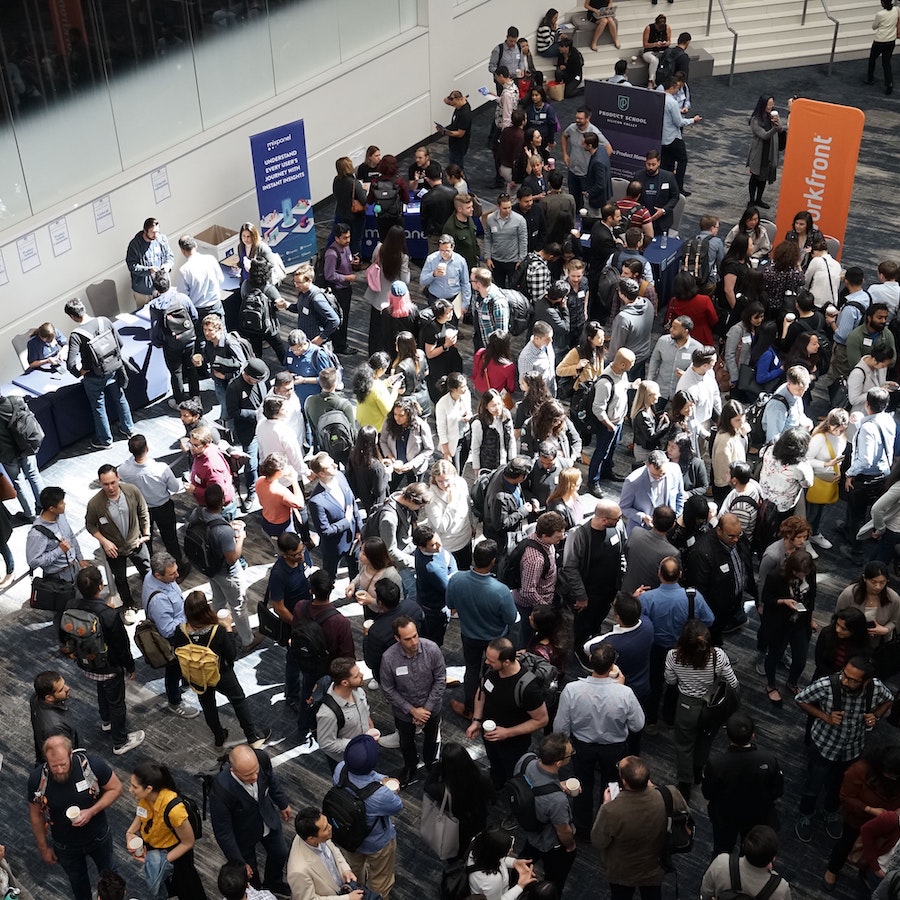As is traditional when the calendar resets to the 1st of January, the events market starts to spring back into life. January is a key time for ideas and planning, February for fleshing out budgets and suppliers, and March is all about starting to pull everything together.
Q1 is certainly full of preparation for the busy event season ahead. That is, if we want our events to be bigger and better than ever before. For event managers, there’s a lot to think about. Are we content to deliver the same format and the same customer experience as the previous year?
If the answer to this is ‘yes’, imagine what our events would look like today: overcrowding in key areas (likely around a single main stage), less than average food and drink, poor sound and visual quality, and most of us struggling to feel like we’ve had value for money, or even an enjoyable experience.
In a world where experiences all around us are getting better, clearer and more immersive, it wouldn’t be right if event managers didn’t want to deliver more from their events every year.
Fast forward to today: we’ve got multiple stages to suit a range of eclectic tastes – (the ‘something for everyone’ vibe), the best street food and drink going, immersive sound and light displays that heighten our experience, taking it to that next level. All creating memories that stay with us for a lifetime.
And the recognition should go to the event manager – who may not dream every idea up, but who brings them to life and makes them reality. Keeping their fingers on the pulse of the latest trends, possibilities and opportunities.
Behind the event scene
For those of us that think the life of an event manager is a glamorous one, think again. It’s not all about working with performers and artists and enjoying attending events for free.
Consider who is responsible when guests aren’t happy? Or when the police are called in due to anti-social behaviour? Who has to respond to customers asking many questions about their tickets or accessibility requirements for example?
Event managers are multi-faceted, multi-tasking ‘do-ers’ that have a huge weight of responsibility on their shoulders. And we applaud them.
Chances are, if you’re a good event manager then you will already know what the latest technology trends are to hit the market in 2023, but here we explore our top 5 event technology trends that we think will be big in 2023.
Event technology trends for 2023
1. Virtual and Hybrid Events:
In 2020, as a result of the Covid pandemic, virtual events became a ‘thing’. SaaS platforms quickly proliferated the market, which allowed people across the globe to ‘meet’ from the safety of their homes. Suddenly, people could continue to learn and engage with one another again, resulting in better knowledge sharing, sales and mental health.
It was a steep learning curve, but event managers learned a new skill, being forced to look at events differently. SaaS providers developed more tools to improve their platforms. Online registrations, breakout rooms, gamification, sponsorship, translation and interactivity were all thought about to make virtual events more immersive and achieve a higher level of engagement.
9 ways event technology is changing the B2B event industry
Fast forward to today, and although some would believe that nothing beats the more traditional face to face interaction in order to build relationships, in 2023 virtual and hybrid events are likely to continue to grow in popularity.
The fact that they allow attendees to participate from anywhere in the world, means that event managers can still use them to gain access to new markets not available at in-person events. The flexibility of hosting an event virtually offers increased attendance, better data insights and cost savings both for the host and the attendee in travel expenses.
For event managers driving larger attendance numbers then virtual and hybrid events are certainly a key way to do this.
2. Artificial Intelligence (AI) and Machine Learning (ML):
AI and ML will play a big role in 2023 in improving event experiences for both attendees and organisers. For example, AI chatbots like Chat GPT can be used to answer attendee questions, both in the lead up to the event, during the event and after the event.
Imagine how much time and cost can be saved on dealing with customer enquiries, complaints, and feedback – whittling down a huge volume of work for your event team.
Machine learning can be used to personalize event recommendations based on attendee preferences. Think interactive apps that will tell users what stages or sessions will best suit them based on their job roles, or recommendations on food vendors based on dietary preferences.
If we could control user behaviour by giving real-time information on waiting times, stock availability or costs then we can offer a much better user experience to event attendees.
Imagine this scenario:
A family attends a festival. They get a preallocated space to pitch their tent, which is highlighted on an app. When they get there, they’re hungry so they look for the closest food vendor, pull up a menu, order and pay for their food and get notified when their order is ready for collection.
They plan their day, and with real-time crowd information they can decide which stage to head to, reviewing what’s on at each stage. Or, if they prefer the comfort of their own space, they can immerse themselves in a remote sensory performance from the comfort of their festival accommodation. Streaming is seamless, choice readily available and, hey – if the queues for food are too long, how about a delivery?
It means we can all experience events how we want them, ultimately giving each person a truly personalised experience. The ultimate indulgence.
3. 5G Technology:
The widespread adoption of 5G event WiFi networks will enable faster and more reliable connectivity for events, offering more sophisticated and immersive virtual and hybrid events.
Whereas black spots were a commonality for events, and inability to take payments ruined revenue opportunities, in 2023 the right provider should be ahead of the game.
Building networks with multiple access points that allow enough bandwidth for organisers, traders and guests should be the norm. Opportunities are endless, and connectivity everywhere in 2023.
If we’re going to embrace artificial intelligence, machine learning, augmented and virtual reality at our events, then good connectivity is the backbone of the technology that supports them.
And for the more remote event venues, where 5G isn’t yet available, then there’s satellite. Satellite solutions are now smaller, easier to install, cheaper and more reliable. In 2023 they’ll be a more popular option for both the main internet connection, as well as a solid backup to 5G.
4. Augmented and Virtual Reality (AR and VR):
AR and VR technologies will be used to enhance the event experience, providing attendees with immersive and interactive experiences.
For event sales team, AR and VR are powerful sales tools, enabling them to visually demonstrate to prospective traders what they can expect to get for their investment. Plans of exhibition venues, events spaces and booths can help clarify and justify the traders’ spend.
Create immersive sponsorship experiences , bringing brands to life and making them stand out against the competition. AR and VR also encourages increased coverage for brands over social media, giving your event and your sponsors more visibility and a far wider reach. For brands that are really looking to grab market share, this option will be a really attractive asset.
AR and VR are also great for staff training. Imagine the power of health and safety briefings around a large site delivered through a headset. Staff are more engaged, without distraction and can easily access the training at any time throughout the event.
5. Event Analytics:
The use of big data and analytics will continue to increase, allowing event organizers to better understand attendee behavior and make data-driven decisions about event design and marketing.
There are many ways to track event attendees, from their initial event registration, to interaction with event apps and websites, down to their interaction within a space itself.
Floor sensors can precisely track footfall over an event space, and even track journey pathways, measure waiting lines and count attendees.
WiFi analytics uses strategically placed WiFi access points to listen for network probes from mobile devices. The technology can track these signals, telling event managers:
- How many people are in the area
- How long people stay in a certain area
- How close guests come to a point of interest
- Whether people engage or simple pass by points of interest
A similar approach detects bluetooth signals from bluetooth enabled devices.
Bluetooth is more discrete and not always detectable so relies on closer interaction to monitor traffic. Bluetooth signal can be improved however, with the use of additional trackers incorporated into lanyards or name badges.
Bluetooth technology offers the opportunity to broadcast messages as people enter a point of interest. Special offers, messages and announcements can help drive sales and brand awareness. Couple this with data capture and post-event marketing automation and you’ll be propelling your business forward in no time.
At a deeper level, face detection can allow the tracking of eye movement, data on age ranges, gender and other facial features like glasses to help with audience segmentation data.
These are just some of the event technology trends that are likely to shape the market in 2023. It’s important for event planners to stay informed about technological developments, so they can make informed decisions about how to leverage technology to enhance the event experience for attendees and organisers alike.
About Fli-Fi
Fli-Fi is an event WiFi specialist, supplying 4G, 5G and satellite technology to event spaces across the UK. If you would like further information about hiring WiFi or to speak to our experts you can contact us on enquiries@fli-fi.co.uk or 020 3778 0454.















